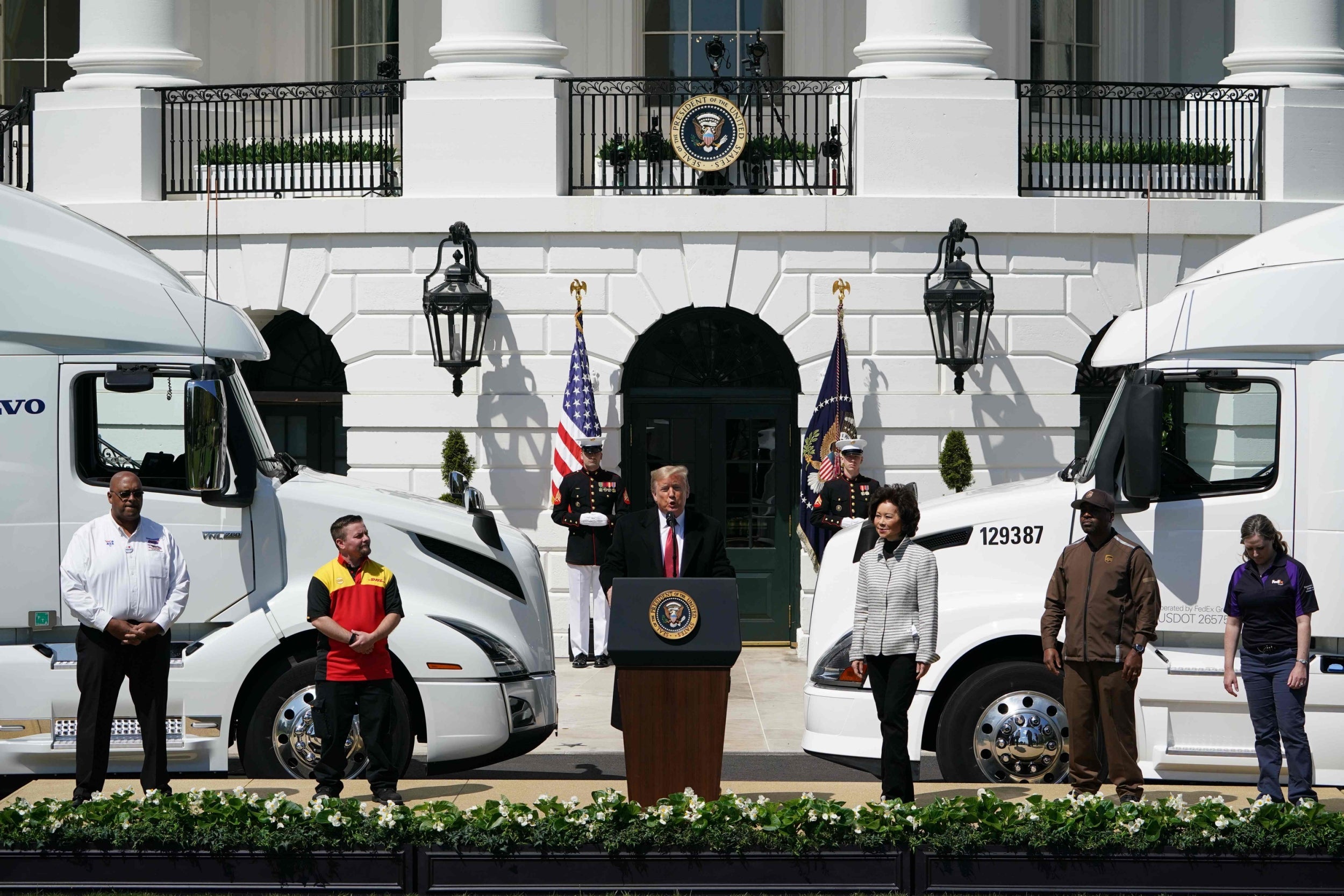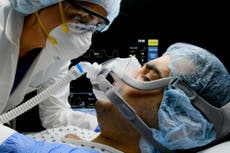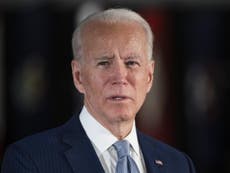Truckers are the essential workers we forgot during the coronavirus pandemic
Only Trump has gone out of his way to specifically praise the people working tirelessly every day to bring us food and medicine, and that could be an election problem for Biden


My mother's father began long-haul trucking after leaving his family’s farm in Nebraska. He’d take produce from California up through the northwest, the west, southwest and back. I remember hearing stories about how he’d have to use the runaway truck ramp in the Rocky Mountains when the brakes went out from time to time. One time my mother was even with him when it happened. It was a hard job, but they were poor, and he needed the money.
Back then, my grandfather was paid a salary. But now, the people we depend on for everything from cabbage to medicine during the coronavirus crisis are paid by the mile and get few benefits like health insurance or paid sick leave. This pandemic should have made it obvious how much we depend on them and how much we should value them — but only President Trump seems to have properly realized that, and that’s a big problem.
Under normal circumstances, many long-haul truck drivers work more hours and drive at faster speeds to get in more frequent trips. They're tired, overworked and often have health problems from the long stretches without exercise and the food they eat on the road. The American Trucking Association has recently partnered with other companies to provide gallons of hand sanitizer along freight corridors, but since traditional road stops are closed due to the pandemic, drivers have less access to even the most basic tenets of personal hygiene. That means they might decide to push forward on the road until they reach their destination, even though they need to stop and rest.
Unsurprisingly, truck accidents have been on the rise for years. According to the last available data from the Federal Motor Carrier Safety Administration, fatal crashes involving large trucks went up by 10 percent in 2017, from 4,251 to 4,657. The number of large trucks involved in injury crashes increased by 5 percent, from 102,000 to 107,000.
I spoke with Jim Adler, a well-known personal injury attorney and local celebrity in Texas famed for his television commercials. He told me about the strains on truck drivers during the pandemic and said that the federal government has “suspended rules intended to prevent fatigue-related truck and 18-wheeler crashes.”
“Many truckers are getting sick and are struggling to keep up with the demand from the pandemic,” Adler added. “They are under a lot of pressure to deliver supplies and essential items. It’s hard for them to find face masks, hand sanitizers, paper towels and water. Obviously, truck drivers can’t work from home and often lack health insurance, which increases their stress levels.”
Even before the current crisis, Adler told me, paid sick leave wasn’t a common benefit in the industry. And that hasn’t changed – frontline workers still might be ineligible for paid sick leave under the recently passed Families First Federal Coronavirus Response Act if the company they work for has over 500 employees.
It could be easily resolved, however. All companies need to do is pay a stable wage with opportunities to grow and benefits like regular paid sick leave, pandemic or no pandemic. House Leader Nancy Pelosi is trying to do some of that with a fourth coronavirus relief bill that would include, among other things, billions in hazard pay to essential workers, employee retention tax credits and further economic relief for families. But even that doesn’t address the socio-economic issues faced by most middle-class workers. And Trump has warned that he would veto the bill if it passed the Senate, which doesn’t appear likely. The president may jump to praise truckers through his words, but clearly not in his actions; and many know that.
Truckers, meatpacking plant workers, agricultural workers, and municipal, commercial and hospital cleaning staff are all frontline workers that we are acutely aware of now more than ever before. If they get sick or can’t take care of themselves, we are also in danger. Not just from overworked truck drivers, but from a complete disruption of the food-supply chain. And while grocery store shelves are remain stocked, if the pandemic draws out much further the complex interactions among farmers, processing plants, shipping, retailers, and consumers could be at stake.
Former vice president Joe Biden should be reaching out to blue-collar workers like truck drivers that have been keeping us stocked up during the crisis. While he’s addressed the emissions issues from trucking, he has yet to try to connect with industry workers and unions. This section of the middle class has been catered to exclusively by Trump during the past months and that’s a dangerous wager for Biden. And although truckers as a demographic weren’t supporting Senators Bernie Sanders or Elizabeth Warren during his campaign, their plans to support middle-class working people are exactly the kinds of reforms this country needs to put in place going forward.
By battling for decades against healthcare reform and social safety nets for working-class people, America has all but officially abdicated its role as a world leader in employment and overall quality of life. But if we don’t take care of the frontline workers we depend on for our sustenance and livelihoods, we can forget about ever recuperating the American dream that people like my grandfather worked so hard to keep going.





Join our commenting forum
Join thought-provoking conversations, follow other Independent readers and see their replies